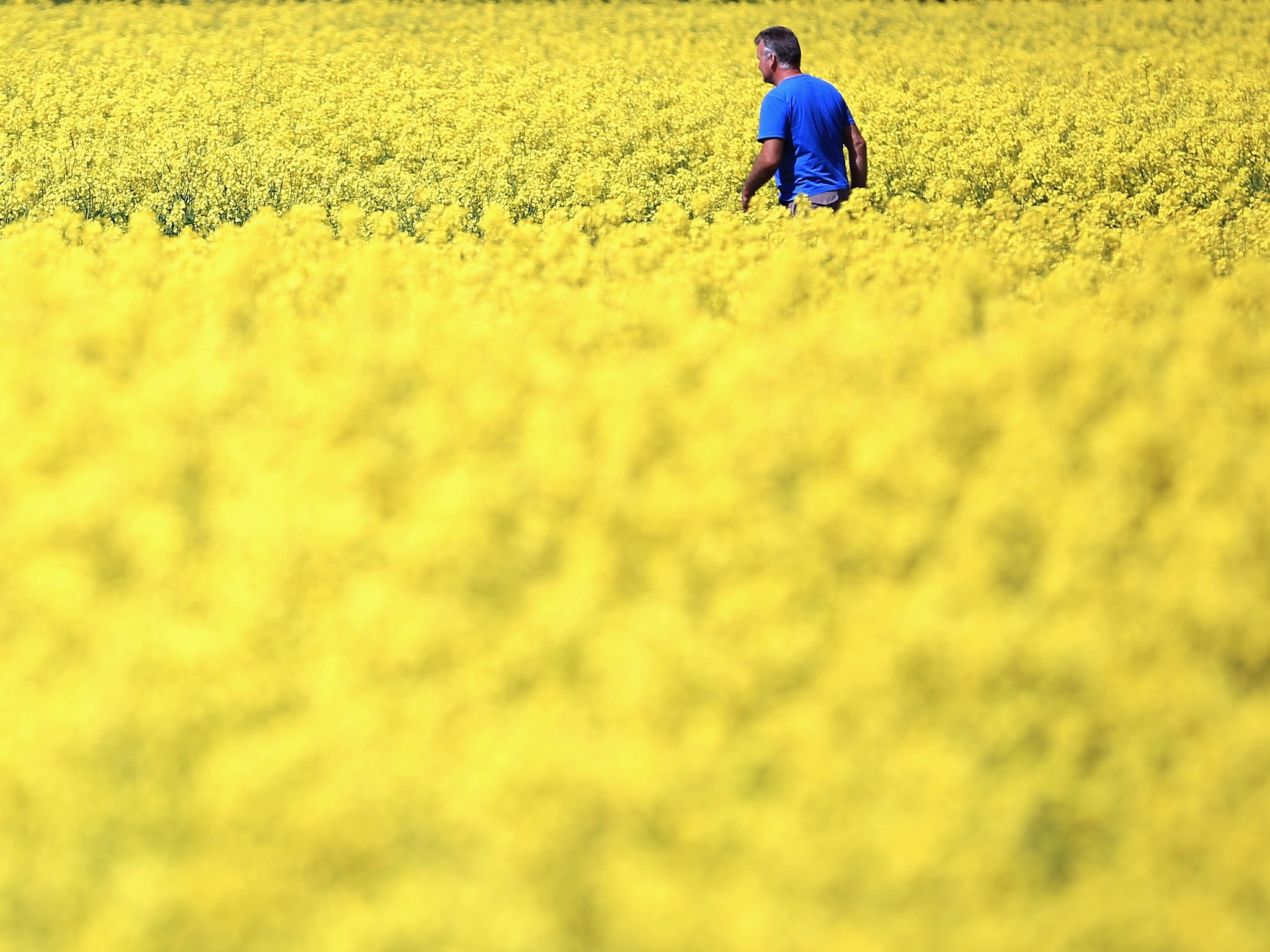China announces tit-for-tat tariffs on Canadian food imports
Tariffs add to global trade tensions already high, with rounds of duties announcements by US, China, Canada and Mexico
China has announced tariffs on more than $2.6 billion worth of Canadian agricultural and food products, retaliating against levies Ottawa introduced in October and opening a new front in a trade war largely driven by US President Donald Trump.
The levies, announced by the commerce ministry and scheduled to take effect on 20 March, match the 100 per cent and 25 per cent import duties Canada slapped on China-made electric vehicles and steel and aluminium products just over four months ago.
By excluding canola oil, which is also known as rapeseed – one of Canada's top exports to the world's No.1 agricultural importer prior to China investigating it for anti-dumping last year – Beijing may be keeping the door open for trade talks.
But the tariffs also serve as a warning shot, analysts say, with the Trump administration having signalled it could ease 25 per cent import levies the White House is threatening Canada and Mexico with if they apply the same extra 20 per cent duty he has slapped on Chinese goods over fentanyl flows.

"Canada's measures seriously violate World Trade Organization rules, constitute a typical act of protectionism and are discriminatory measures that severely harm China's legitimate rights and interests," the commerce ministry said in a statement.
China will apply a 100 per cent tariff to just over $1 billion of Canadian rapeseed oil, oil cakes and pea imports, and a 25 per cent duty on $1.6 billion worth of Canadian aquatic products and pork.
"The timing may serve as a warning shot," said Dan Wang, China director at Eurasia Group in Singapore. "By striking now, China reminds Canada of the cost of aligning too closely with American trade policy."
"China's delayed response (to Ottawa's October tariffs) likely reflects both capacity constraints and strategic signalling," she added. "The commerce ministry is stretched thin, juggling trade disputes with the U.S. and European Union."
"Canada, a lower priority, had to wait its turn."
The Canadian embassy in Beijing did not immediately respond to a Reuters request for comment.
Canadian Prime Minister Justin Trudeau said in August that Ottawa was imposing the levies to counter what he called China's intentional state-directed policy of over-capacity, following the lead of the United States and European Union, both of which have also applied import levies to Chinese-made EVs.
In response, China in September launched an anti-dumping investigation into Canadian canola imports. More than half of Canada's canola exports go to China and the trade was worth $3.7 billion in 2023, according to the Canola Council of Canada.
"The investigation on Canadian canola is still ongoing. That canola was not included in the list of tariffs this time might also be a gesture to leave room for negotiations," said Rosa Wang, an analyst with agricultural consultancy JCI.
Beijing could also be hoping that a change in government in Ottawa makes it more amenable. Canada's next national election must be held by October 20.
China is Canada's second-largest trading partner, trailing far behind the United States. Canada exported $47 billion worth of goods to the world's second-largest economy in 2024, according to Chinese customs data.
China is Canada's third-most important pork export market. It takes products for which Canada does not have easy alternate markets, said Cam Dahl, General Manager of the Manitoba Pork Council.
“The things we export to China, heads for example, are parts of the animal that don’t have easy other markets," he said. "We can’t take that container that’s going to China and just ship it to Mexico.”
China is Canada's number-two market for canola, said Chris Davison, president and CEO of the Canola Council of Canada.
"The (tariff) levels that are being talked about here are prohibitive levels, for sure. ... The impacts will be felt across the industry," he said, adding that he would like to see financial support from the government.
Canadian government spokespersons did not immediately respond to requests for comment.
Bookmark popover
Removed from bookmarks